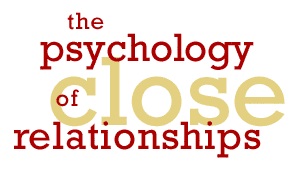  |
  |
 Dr. Susan Sprecher  Dr. William Cupach
|
 Susan Sprecher, Ph.D., is Professor of Social Psychology (in Sociology) at Illinois State University. Currently the editor of the journal Personal Relationships, she is interested in many aspects of relationships, including love, satisfaction, equity, and relationship stability. Notable among her current projects is the study of compassionate love and how it differs from other types of love such as romance. Also at Illinois State, William Cupach, Ph.D., is Professor of Communication, and is also Vice President of the International Association for Relationship Research. Bill's work especially examines how people manage interactions that are troublesome, awkward, or embarrassing. Recently he's been collaborating with Brian Spitzberg (see Visiting Scholar, Session 6) to understand stalking and the obsessive pursuit of relationships. At least some relationship conflict could be either prevented or managed by the couple so that it is not destructive. Can you offer advice about how to develop a healthy approach to handling conflict? Bill: Not only is much conflict inevitable, it can even be beneficial. Consequences are positive when partners treat disagreements as problem-solving opportunities. It's almost important to realize that sometimes it really is okay to disagree! Conflict becomes destructive when partners say and do things that demean and devalue each other. Nobody likes to be put down. When we are attacked, it's natural to counterattack-so conflict discussions soon spiral out of control. So it isn't a specific conflict issue but this type of conflict which partners must avoid. Instead, one's goal should be to treat his or her partner with respect and dignity no matter how opposed or upset we feel. What advice would you give to couples who have trouble communicating? Bill: Metacommunicate! That means talk about your communication when you experience problems. Saying something as simple as "I have trouble talking about our families" is an example. It opens up the topic, acknowledges there is a problem, and also admits to difficulty communicating. Further, resist making assumptions that could be false. Check perceptions before you imagination runs wild in the wrong direction. Sue: Don't forget that communication problems may not be the cause of conflict, but a symptom. It could be something much more basic to the relationship that is really causing problems. For example, one partner may not feel less love for the other, or lack the desire to communicate at all. Ask yourself whether communication is the problem, or is a sign of a deeper problem. How can couples engage in "preventive maintenance"? Are there guidelines we can follow to nurture intimacy and commitment? Sue: I have several suggestions: First, engage in activities that are fun for both partners; this boosts both satisfaction and attraction. Second, make your relationship a part of a larger network of loved family and friends-no couple is an island! Research shows that partners enjoy each other more when they are interacting with others, perhaps because it breaks the mundane routine and gives them another way of seeing each other. Finally, you've both learned many lessons in your respective research. Have you found any to be especially helpful in your own relationships and lives? Bill: Yes -- so many! Here are three that leap to mind: First, being ready and willing to apologize -- and forgive -- are powerful antidotes to making mistakes with our partners. Second, being helpful and nice to a partner before there are problems is just as important as not being nasty and mean. Finally, recognize when you perhaps should let go of a relationship, particularly when it is damaging an unhealthy, as with a partner who is abusive. Sue: What has been most important to me is the power of expectations and optimism. For example, if you expect another person to like you, he or she probably will -- it's a self-fulfilling prophecy because you act in a way that promotes liking. Think positive. If you believe your relationship will work, it does, because you naturally behave toward your partner in ways that promote closeness. |